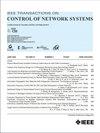具有网络效应的数据奖励分布式最优契约
IF 5
3区 计算机科学
Q2 AUTOMATION & CONTROL SYSTEMS
引用次数: 0
摘要
数据奖励是一种新的商业模式,引领着移动网络的经济趋势。在这个方案中,广告主激励移动用户观看广告,作为回报,广告主以移动数据的形式获得奖励。在这项工作中,我们使用契约理论方法,对具有关于mu的不对称信息的广告商和在网络下相互连接的mu之间的交互进行了建模。我们得到了一个最优的、实用的契约来激励mu参与数据奖励方案,并鼓励他们如实声明自己的私人信息的充分必要条件。该契约的表述是一个非凸约束优化问题。利用引理和命题,将难以求解的初始优化问题重新表述为具有凸约束的优化问题,并证明了这两个问题是等价的。然后,利用分布式非凸算法,得到广告需求量和激励报酬。本文章由计算机程序翻译,如有差异,请以英文原文为准。
Distributed Optimal Contract for Data Rewarding With Network Effects
Data rewarding is a novel business model that leads to an economic trend in mobile networks. In this scheme, the advertiser incentivizes mobile users (MUs) to watch advertisement (ads) and, in return, receive a reward in the form of mobile data. In this work, we model the interaction between an advertiser who has asymmetric information about MUs and MUs who are connected to each other under a network, using the contract theory approach. We obtain the necessary and sufficient conditions for an optimal and practical contract to motivate MUs to participate in the data rewarding scheme and encourage them to declare their private information truthfully. The formulation of this contract is a nonconvex-constrained optimization problem. Using lemmas and propositions, we reformulate the initial optimization problem that is challenging to solve as an optimization problem with convex constraints and prove that these two problems are equivalent. Then, with the help of a distributed and nonconvex algorithm, we obtain the amount of ads demand and incentive reward.
求助全文
通过发布文献求助,成功后即可免费获取论文全文。
去求助
来源期刊

IEEE Transactions on Control of Network Systems
Mathematics-Control and Optimization
CiteScore
7.80
自引率
7.10%
发文量
169
期刊介绍:
The IEEE Transactions on Control of Network Systems is committed to the timely publication of high-impact papers at the intersection of control systems and network science. In particular, the journal addresses research on the analysis, design and implementation of networked control systems, as well as control over networks. Relevant work includes the full spectrum from basic research on control systems to the design of engineering solutions for automatic control of, and over, networks. The topics covered by this journal include: Coordinated control and estimation over networks, Control and computation over sensor networks, Control under communication constraints, Control and performance analysis issues that arise in the dynamics of networks used in application areas such as communications, computers, transportation, manufacturing, Web ranking and aggregation, social networks, biology, power systems, economics, Synchronization of activities across a controlled network, Stability analysis of controlled networks, Analysis of networks as hybrid dynamical systems.
 求助内容:
求助内容: 应助结果提醒方式:
应助结果提醒方式:


